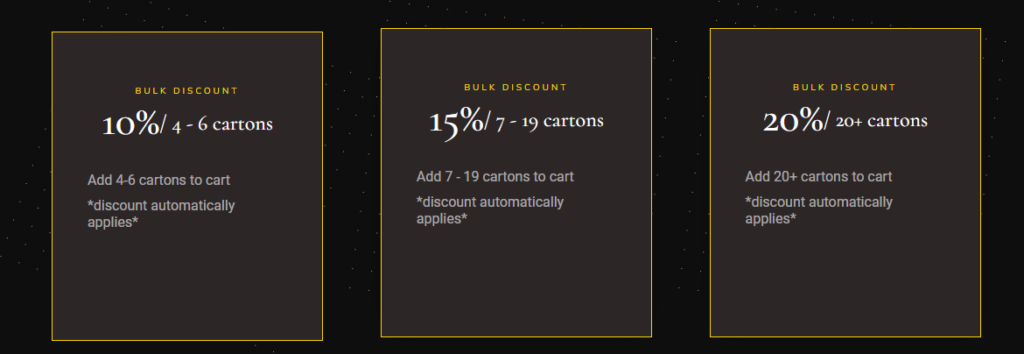In recent years, there has been a notable shift among Canadian smokers towards purchasing and consuming Native-brand cigarettes, commonly referred to as “native smokes.” These brands include popular names like Playfare, Canadian, and Nexus, among others. This transition reflects more than just a preference for local products; it speaks to a confluence of economic, cultural, and practical reasons that are reshaping the smoking habits of Canadians.
While the discussion surrounding this trend often ventures into the realm of legalities and taxation, this blog will focus primarily on the reasons beyond legal constraints—those tied to economics, culture, and consumer preferences. By exploring the motivations for this switch, we will better understand why native smokes have carved a significant niche in the Canadian market. From affordability to community support, and even the perceived quality of native smokes, this deep dive will help explain why so many Canadians are making this change.
1. Affordability: A Key Driver in the Shift to Native Smokes
Rising Costs of Traditional Cigarettes
For many Canadians, the rising cost of traditional cigarettes has become a major deterrent. Government taxation on tobacco products is continually increasing, in part as a deterrent to smoking and in part as a public health initiative. As a result, the price of a pack of cigarettes in mainstream brands like Marlboro, Du Maurier, or Rothmans has soared. In provinces like British Columbia, Alberta, and Ontario, smokers can expect to pay anywhere from $12 to $20 or more for a pack of 20 cigarettes. These hefty prices have pushed smokers to seek out more affordable alternatives.
Native Smokes Offer a Cheaper Option
Native brands like Playfare, Canadian, and Nexus have capitalized on the price-sensitive nature of the market. Many native smokes are sold at significantly lower prices than their mainstream counterparts. For instance, a carton of native cigarettes can often be purchased for half the price of a carton from a non-native brand, sometimes even less. This stark difference in price is one of the most prominent reasons why Canadian smokers have switched to native smokes.
For many smokers, the choice to buy native brands isn’t simply a matter of preference—it’s an economic necessity. The affordability of native smokes allows them to continue smoking without the financial burden associated with higher-priced, heavily taxed cigarettes. For individuals and families working within tight budgets, this price difference is substantial.
2. Support for Indigenous Economies and Communities
Buying Native Brands as an Ethical Choice
In addition to affordability, many Canadians are increasingly aware of the importance of supporting Indigenous economies. Buying native smokes can be seen as an act of solidarity, especially as the push to support Indigenous businesses and communities grows within the broader Canadian society. The economic benefits from native smokes directly contribute to Indigenous reserves and businesses, allowing them to strengthen their infrastructure, health services, and educational programs. For some smokers, choosing native smokes is part of a broader ethical decision to support Indigenous-run enterprises rather than multinational tobacco companies.
Building Relationships Between Indigenous and Non-Indigenous Canadians
Furthermore, this shift highlights an evolving relationship between Indigenous and non-Indigenous communities in Canada. Native smokes are often sold through Indigenous-run smoke shops, either on reserves or in nearby areas. This creates a direct line of economic engagement between Indigenous business owners and their non-Indigenous customers. These relationships, while fundamentally economic, also serve as a reminder of the power of local trade to build connections across cultural and historical divides.
3. Perceived Quality and Natural Ingredients
Perception of Natural Ingredients and Less Additives
One reason Canadians are switching to native smokes is a growing belief that these products contain fewer additives and chemicals than mainstream cigarettes. Some smokers perceive native brands to be more “natural” because they believe the tobacco used in these cigarettes is closer to its original, unaltered form. While mainstream cigarettes are often associated with a litany of harmful additives—such as ammonia, formaldehyde, and acetone—there is a perception that native brands are produced with fewer chemicals and are therefore healthier, or at least less harmful, than their counterparts.
It’s worth noting that this belief is often anecdotal, as detailed studies comparing the chemical contents of native smokes to mainstream cigarettes are limited. However, the perception that native smokes are more natural aligns with the growing consumer desire for transparency in product ingredients and an interest in purchasing less processed goods. Even in industries like food, beverage, and cosmetics, there’s a trend toward more “natural” products, and this philosophy extends into tobacco use as well.
Taste Preferences
For some smokers, the switch to native smokes is also influenced by a preference for the taste. Smokers who have made the change often report that native smokes offer a cleaner, smoother smoking experience. Whether this is due to different production processes, ingredients, or simply individual taste preference, native brands have won over a portion of smokers who are not just cost-conscious but also taste-conscious.

4. Availability and Convenience of Purchasing Native Smokes
Access to Smoke Shops and Online Retail
Another factor in the growing popularity of native smokes is their availability. Many smoke shops located on Indigenous reserves offer these products at accessible prices. For smokers living in proximity to reserves, purchasing native cigarettes is a simple and convenient process. But even for those living farther away, the rise of online smoke shops like Native Smokes Canada has made it easier for Canadians to buy native cigarettes. The ability to purchase cigarettes online and have them delivered to one’s door adds an element of convenience that was not always available in the past.
Consumer Loyalty to Local Shops
This availability, coupled with a growing sense of loyalty to local Indigenous smoke shops, has helped solidify native smokes as a viable option for Canadian smokers. In an era where consumers are increasingly interested in supporting small businesses over large corporate entities, purchasing native smokes from local shops aligns with broader societal shifts towards shopping local and supporting community-driven economies.
5. Cultural Appeal and Identity
Connection to Canadian Indigenous Culture
There is also a cultural component to the rise in popularity of native smokes. For some Canadians, purchasing native smokes is a way to connect with Indigenous culture. While smoking itself is not an inherently cultural act, the purchase of products produced by Indigenous communities can, in some ways, be seen as a gesture of respect or interest in Indigenous ways of life.
This sense of cultural connection is also appealing to younger smokers who may be exploring their own identities within the context of Canada’s diverse cultural landscape. As awareness of Indigenous history and traditions grows within the broader Canadian public, there is a growing desire to support Indigenous businesses and engage with Indigenous communities in meaningful ways. This is especially true as conversations about reconciliation continue to shape the Canadian national consciousness.
Unique Branding of Native Cigarettes
Native cigarette brands have also managed to carve out their own unique branding that sets them apart from mainstream tobacco companies. Brands like Playfare, Nexus, and Canadian often feature branding that reflects Indigenous art and imagery, further reinforcing the connection to Indigenous culture. For some smokers, the aesthetic appeal and cultural significance of this branding can play a role in their purchasing decisions. The visual elements that distinguish native smokes from more mainstream brands give these products a distinctive place in the market, appealing to those who are looking for something different.
6. Disrupting Big Tobacco’s Monopoly
Breaking Away from Corporate Tobacco Giants
Another reason behind the shift to native smokes is a desire to break away from big tobacco corporations. Many Canadians, especially younger generations, are increasingly skeptical of large corporations and their role in the health, economic, and environmental issues of today’s world. The tobacco industry, which has historically been dominated by major players like Philip Morris International and British American Tobacco, is no exception to this scrutiny.
The rise of native brands represents a kind of grassroots alternative to the monopoly held by these large corporations. By purchasing native smokes, consumers are making a conscious choice to divert their dollars away from major global corporations and towards small, local businesses. This shift aligns with broader societal trends where people seek out locally produced alternatives to mass-produced goods.
Impact on Market Competition
This disruption of big tobacco’s monopoly also has implications for market competition. As native smokes gain more popularity, traditional tobacco companies are forced to reconsider their pricing and marketing strategies to retain their customer base. In a way, native brands are fostering more competition in a market that has long been dominated by a few powerful players.
7. Community and Word of Mouth
The Role of Social Influence in Shaping Smoking Habits
Finally, one of the most subtle but impactful reasons for the shift to native smokes is community influence. For many smokers, the decision to switch to native smokes comes from a recommendation by a friend, family member, or co-worker. Word of mouth has always played a significant role in shaping consumer habits, and the smoking community is no different. As more Canadians make the switch to native smokes and share their experiences, others are inclined to follow suit, especially if they trust the opinions of those recommending the change.
This sense of community is also reinforced by the experience of buying from Indigenous smoke shops. Whether visiting in person or purchasing online, the process of buying native smokes can feel more personal than purchasing from a corporate chain or convenience store. This personal connection to the buying process—whether through interactions with Indigenous shop owners or the experience of supporting a local business—adds another layer to the decision-making process.
Conclusion: The Future of Native Smokes in Canada
As we have explored, the shift to native smokes among Canadians can be attributed to a variety of factors, ranging from affordability and cultural connection to ethical considerations and taste preferences. The rise of native cigarette brands like Playfare, Canadian, and Nexus signals a broader movement toward supporting Indigenous businesses and economies, while simultaneously reflecting the need for more affordable alternatives in a market where cigarette prices continue to rise.
Native smokes have disrupted the traditional tobacco industry by offering a product that resonates with Canadians on multiple levels. With continued support from consumers and increased availability through platforms like Native Smokes Canada, these brands are poised to become an even more significant part of the Canadian tobacco landscape.
For smokers seeking a more affordable, culturally resonant, and potentially less additive-laden alternative to mainstream cigarettes, native smokes provide a compelling option. As societal trends continue to favor local, ethical, and community-oriented products, the future of native smokes in Canada looks promising, with continued growth likely in the years to come.



